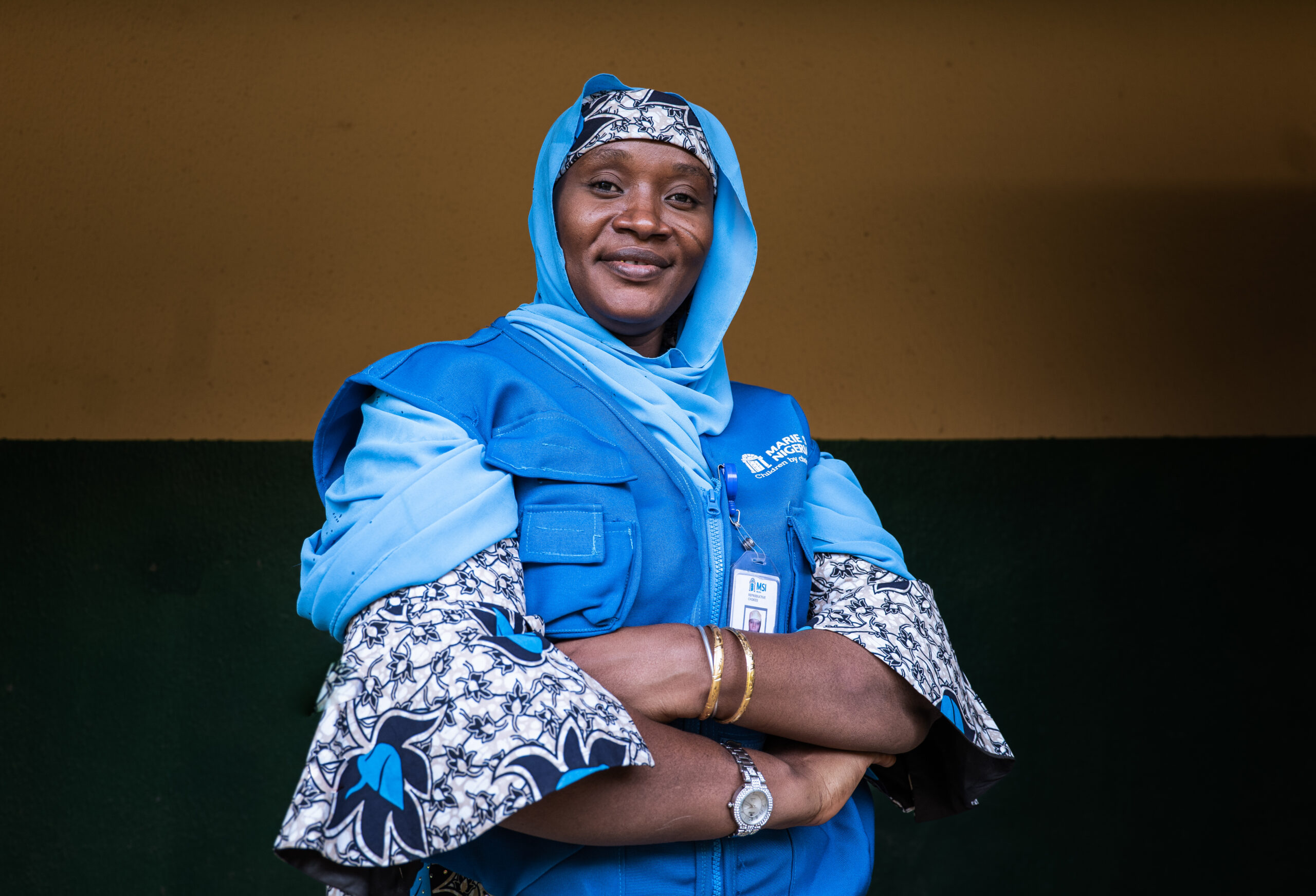I will never forget the words of Damaless Banda Mukaka.
“If you empower a woman or a girl, then you’ve empowered a home, you’ve empowered a country and you’ve empowered the world.“
As an MSI nurse in Zambia, every day Damaless sees the power of reproductive choice, supporting women and girls to live their lives on their own terms, to stay in education, forge careers and contribute to improving their lives and communities. The right to choose is transformational.
But today, the international community is failing the 35 million women each year who have to make the agonising decision to resort to an unsafe abortion. And it is failing the 230 million women who want access to contraception but can’t get it. In just a few months the Covid-19 pandemic has made this gap significantly wider, and if no additional action is taken this number could increase to over 300 million by 2030.
It doesn’t have to be this way. Our vision for the next 10 years is bold: by 2030, no abortion will be unsafe and every individual who wants access to contraception will have it. We know this is achievable, but it will require us to do things differently.
One of the first changes you will see is our new name. As we launch our new vision, we have taken the decision to change our name from Marie Stopes International to MSI Reproductive Choices, reflecting our fundamental commitment to choice.
Our name has been a topic of discussion for many years and the events of 2020 have reaffirmed that this is the right decision. MSI was founded in 1976 by Dr Tim Black, Jean Black and Phil Harvey, who opened their first clinic on the site of the original Marie Stopes’ Mothers Clinic’ in central London and named the organisation in recognition of the origins of that historic building and Marie Stopes’ legacy as a family planning pioneer.
But Marie Stopes the woman was also a supporter of the eugenics movement and expressed many opinions which are in stark contrast to MSI’s core values. Our organisation is built on the views of our founders who believed that by providing voluntary, comprehensive contraceptive and safe abortion care, women and girls could pursue the future of their choice. Our 2030 strategy reaffirms this principle.
MSI2030 ‘Your Body, Your Choice, Your Future’
Over the next 10 years, MSI Reproductive Choices commits to reaching at least 120 million women and girls with voluntary high-quality sexual and reproductive healthcare services, focusing on the poorest and most marginalised: women with no alternative access, adolescents, people living in extreme poverty and displaced communities.
For those who point to other global crises from Covid-19 to the climate emergency and say we cannot afford to do this, I say we cannot afford not to.
It costs less than 3 cents per day to protect a young woman from an unintended pregnancy, and as the largest generation of young people in history approach their reproductive years, provision of information and services is key to building their resilience and unlocking their potential.
In many places, the COVID-19 pandemic has disrupted access to contraception and abortion services, however, here in the UK and around the world it has also been a catalyst for positive change, speeding up the introduction of telemedicine. MSI Reproductive Choices will continue to advocate for women to access services on their terms, whether remotely or in a clinic. We will work with partners to remove barriers and harness digital technology to give women information and control to ensure they are never more than one contact away from a safe provider.
Reproductive rights are also facing more man-made challenges. From the reintroduction of the Global Gag Rule (GGR) to scrambling to replace Ruth Bader Ginsburg on the Supreme Court with anti-choice appointee Amy Coney Barrett, the Trump Administration has endeavoured to roll back rights both in the US and globally. MSI Reproductive Choices refused to sign the GGR, reducing our donor income by 17%, or USD $30 million funding annually. We hope that President-elect Biden will repeal this pernicious policy as one of his first acts in office to repair the damage. Now more than ever we need donors and partners to scale up their investments in reproductive health.
Every minute of every day, 67 women resort to an unsafe abortion. Let that sink in. By the time we go to bed today 96,000 women will have risked their lives with an unsafe procedure and more than 44,000 will have such severe complications they will need to go to hospital. We call on new and existing partners to work with us to remove the unnecessary restrictions that cost lives.
Driven by the communities we serve
These are significant challenges that require a bold response and at MSI Reproductive Choices we are committed to transforming to better address them. We are already rooted in the communities where we work and know the benefits that diversity brings, enabling our workforce to be truly global both in location and approach. We are committed to further shifting decision-making to our regions and country programmes, developing and increasing our national and female leadership and elevating the voices of clients to guide the organisation and deliver community-driven, client-centred care.
We have a long road ahead of us. But reproductive choice is foundational in the drive for gender equality and to a future where women and girls take their rightful place in all aspects of society. We are determined that, alongside our partners, we will leave no-one behind. As Damaless knows, only when choice is a reality for each of us, can we create a better, more equal world for everyone.








